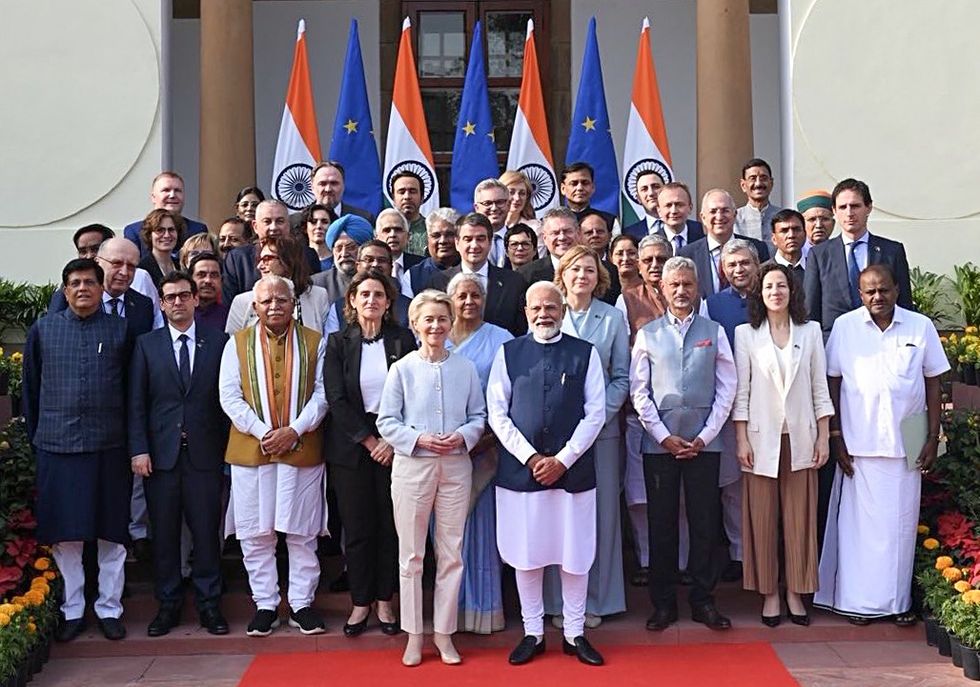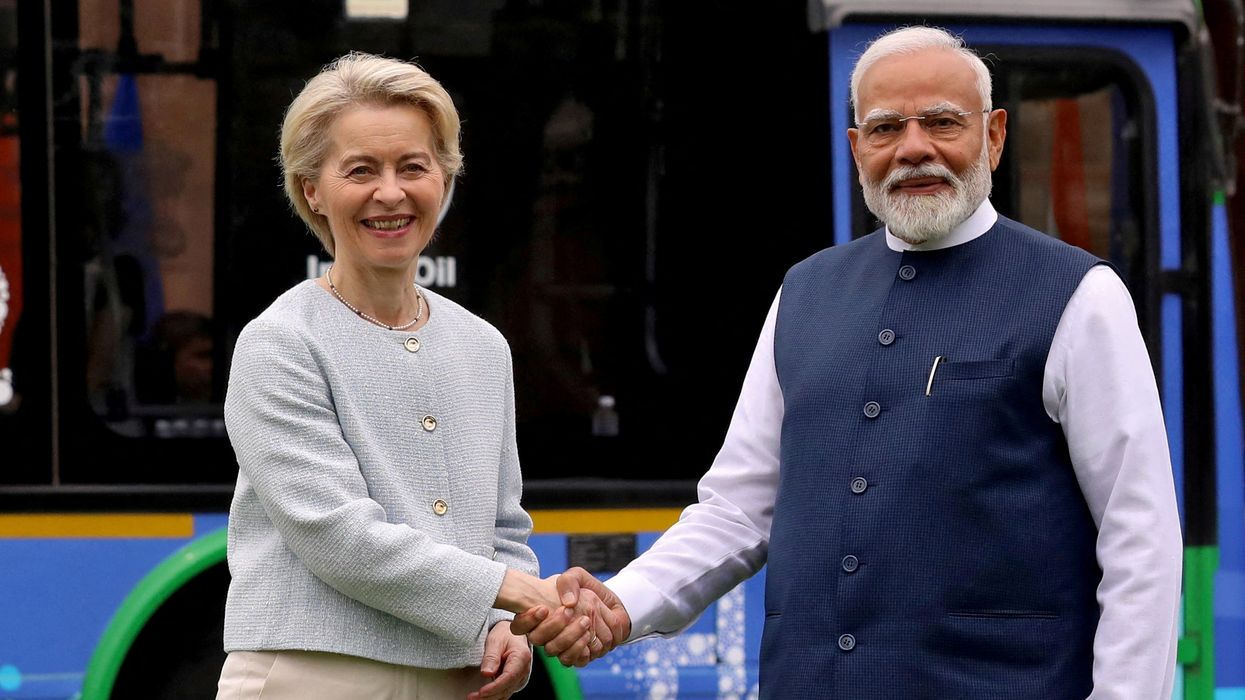INDIA and the European Union agreed last Friday (28) to finalise a free trade deal by the end of the year, marking their first commitment to a deadline after years of talks. This move comes as both sides seek to soften the impact of tariff increases from the United States.
The announcement was made by European Commission president, Ursula von der Leyen, on a two-day visit to India, and India’s prime minister, Narendra Modi, at a joint press conference.
“We have asked our teams to work out a mutually beneficial bilateral free trade agreement by the end of this year,” Modi said in New Delhi.
Von der Leyen said they were “expecting a lot from our trade negotiators”.
“We have tasked our teams to build on this momentum and finalise our FTA before the end of the year,” von der Leyen said after the meeting.
Standing beside Modi, the EU chief added: “We told them they should surprise us”.
Both sides have for years been trying to strike a free trade pact, which would involve major concessions by India – one of the world’s most protected markets. Talks for an India-EU free trade deal resumed in 2021 after having been stalled for eight years.
“We have prepared a blueprint for collaboration in the areas of trade, technology, investment, innovation, green growth, security, skilling and mobility,” Modi said, adding officials have been asked to conclude the deal by the end of the year.
The EU is India’s largest trading partner in goods, with two-way trade growing about 90 per cent over a decade to stand at $137.5 billion (£108.1bn) in the 2023-2024 fiscal year.
Von der Leyen called for an “ambitious” trade and investment deal that could cover industries from batteries and pharmaceuticals to semiconductors, clean hydrogen and defence.

The visit by von der Leyen, accompanied by leaders of EU nations, comes at a time of rising geopolitical tension and as US president Donald Trump has threatened to impose reciprocal tariffs on all nations, including the EU and India, by April.
“We both stand to lose from a world of spheres of influence and isolationism, and we both stand to gain from a world of cooperation and working together,” she said, ahead of talks with Modi. “But I believe this modern version of great-power competition is also an opportunity for Europe, and India, to reimagine its partnership.”
The deal had been delayed for many years by New Delhi’s reluctance to lower tariffs in some areas, while the European Union proved reluctant in easing visa curbs on Indian professionals.
The EU wants India to lower tariffs of more than 100 per cent on imported cars, whiskey and wine, while India seeks greater access for its cheaper drugs and chemicals in the EU market.
India also wants lower tariffs on its exports of textiles, garments and leather products. It also opposes an EU proposal to fix tariffs of 20 per cent to 35 per cent from January 2026 on high-carbon goods, including steel, aluminium and cement.
“It won’t be easy to conclude the free trade talks unless India agrees to drastically cut tariffs on automobiles and other products that could hit domestic industry,” said Ajay Srivastava, of Delhi think-tank Global Trade Initiative.




